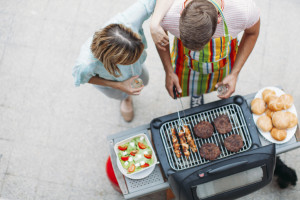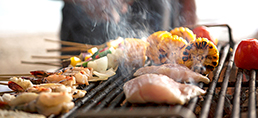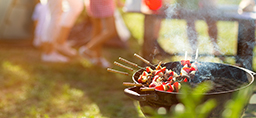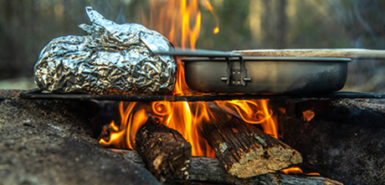
Barbecue season is here, and with all those well-seasoned meats also comes a risk of fires and burns, the National Fire Protection Association cautions.
But you can protect yourself and your family by following a number of safety guidelines.
Never use propane or charcoal barbecues indoors, and keep them well away from the home, deck railings and out from under eaves and overhanging branches. Remove fat and grease buildup from the grill and the tray below the grill.
Never leave the barbecue unattended and keep children and pets away from the barbecue area.
The association also offers some specific safety tips for propane and charcoal barbecues.
On propane barbecues, check the major connection points between the propane tank hose and the regulator and cylinder, and where the hose connects to the burners. Tighten when needed.
Check the propane tank hose for leaks. Apply soapy water to the hose and turn the propane tank on. If there is a leak, you will see bubbles around the hose. If there are bubbles, turn off the propane tank and check the connections, then have your barbecue serviced by an expert before using it again.
If the leak doesn’t stop, call the fire department.
If you smell propane while cooking, turn off the propane tank and burners. If the leak stops immediately, have the barbecue serviced before using it again. If the leak continues, move away from the barbecue, leave it in place and call the fire department.
If you use starter fluid to light a charcoal barbecue, use only charcoal starter fluid. Never add charcoal fluid or any other flammable liquids to the fire. Keep charcoal fluid away from heat sources and out of the reach of children.
If you use an electric charcoal starter, be sure to use an extension cord for outdoor use.
After cooking, let the coals completely cool before disposing them in a metal container.
 /a>
/a>
 /a>
/a>
 /a>
/a>